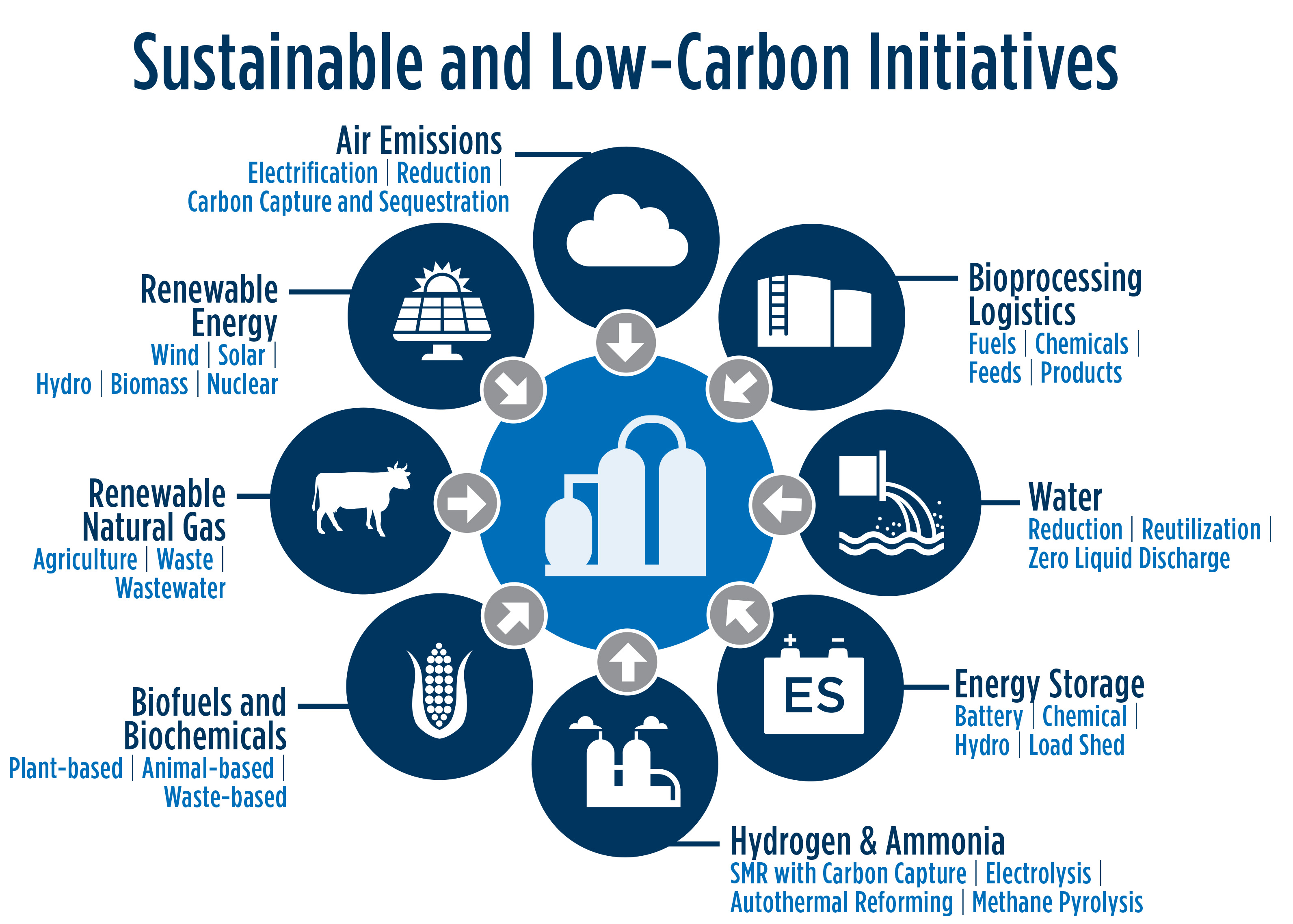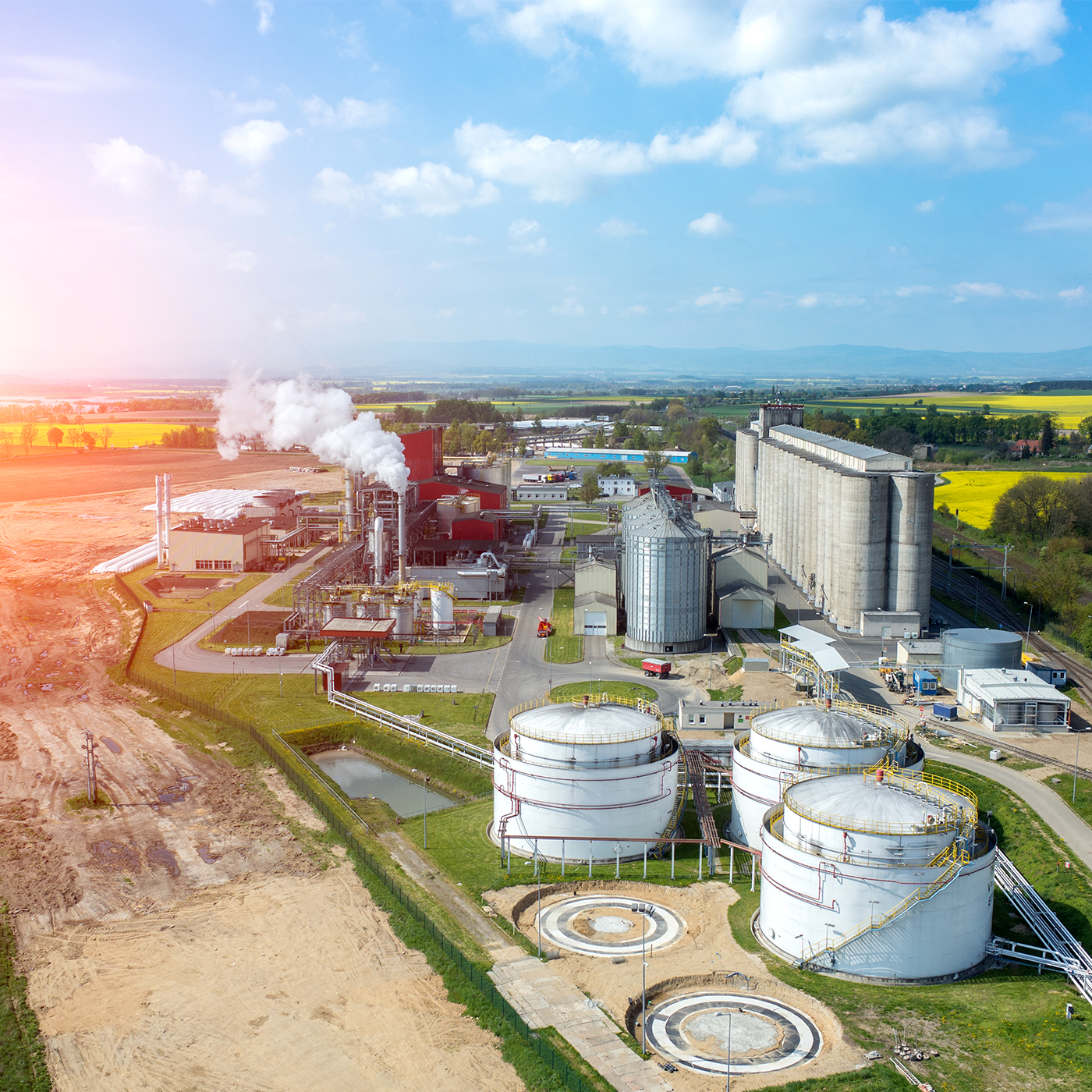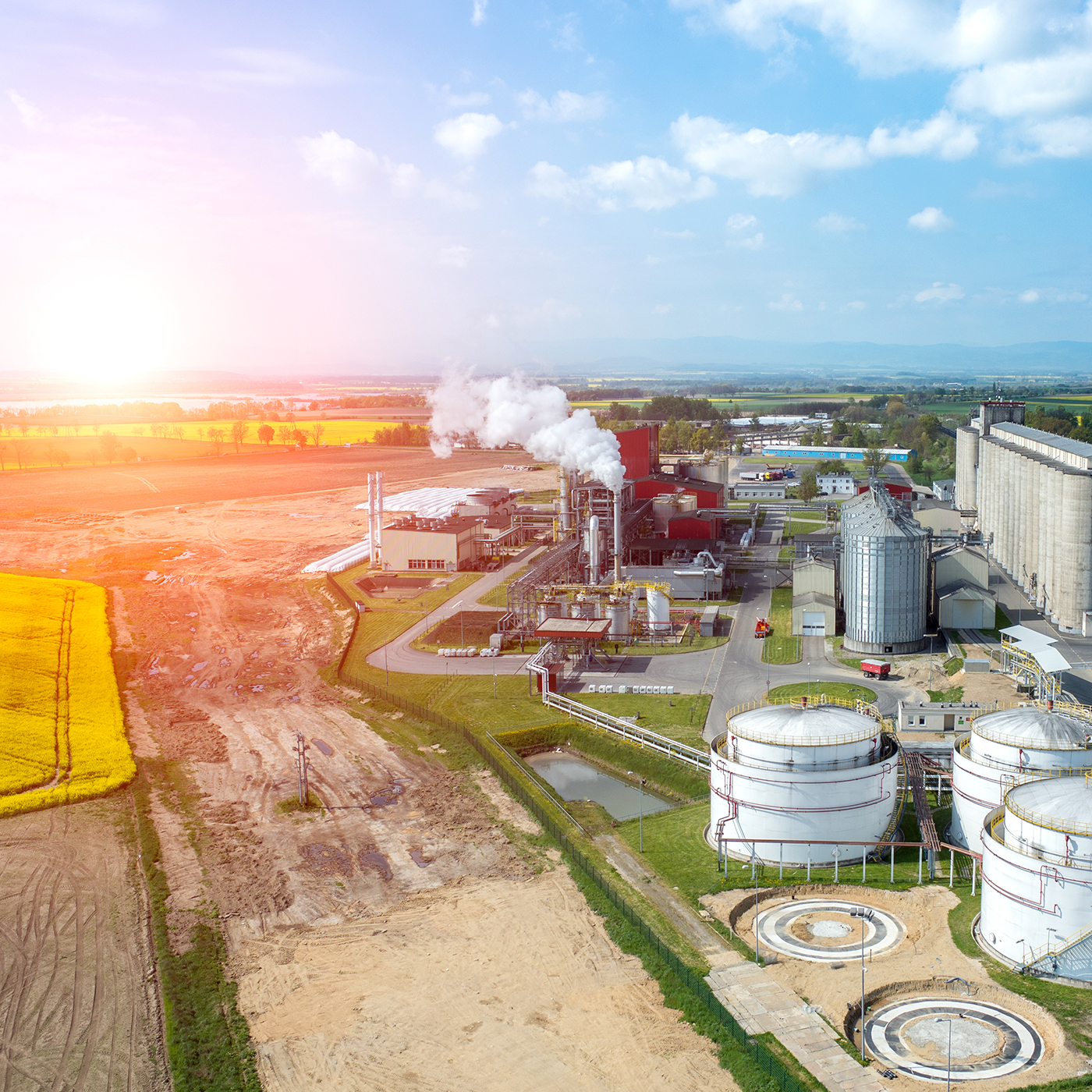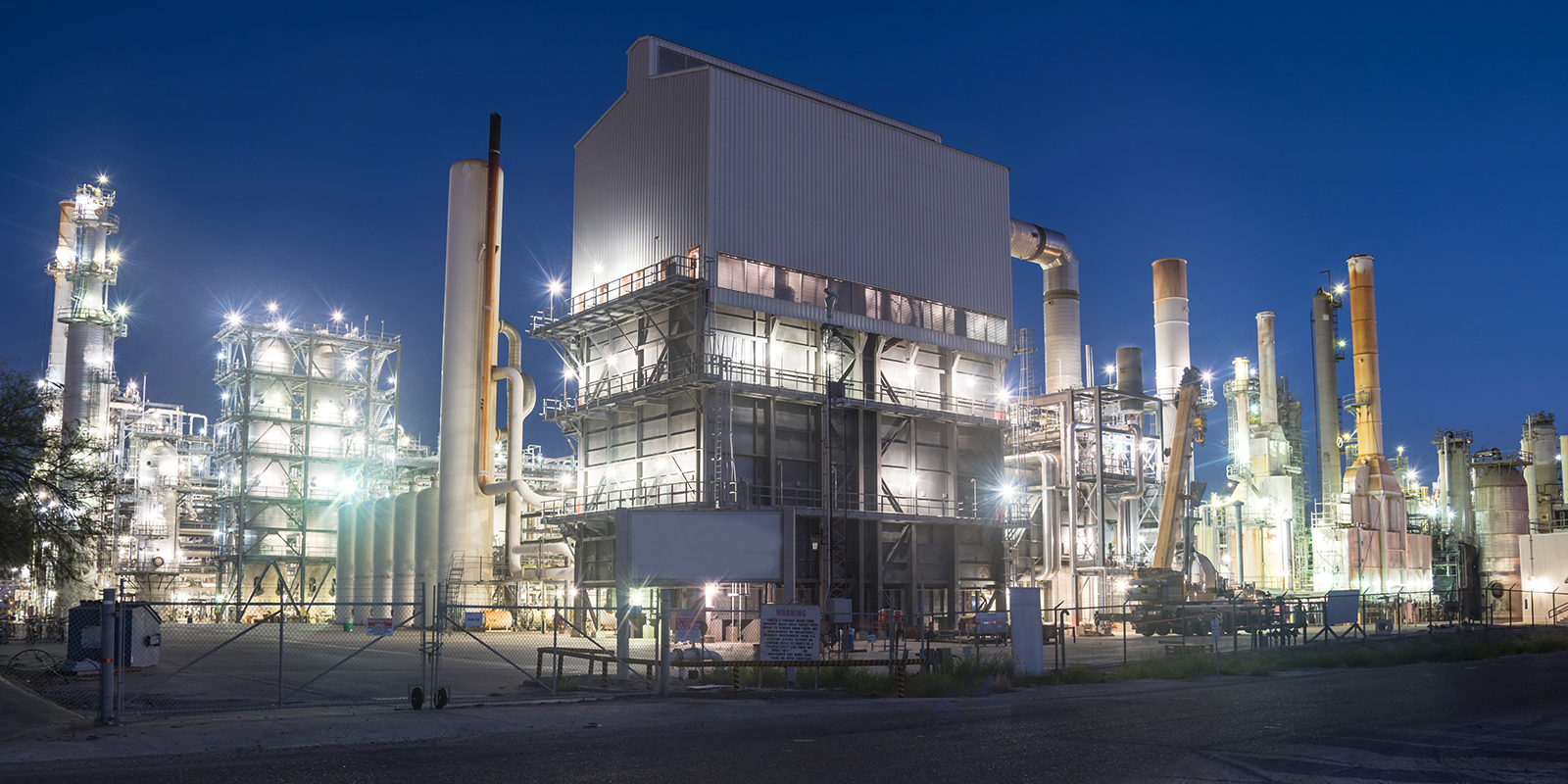


white paper
Renewable fuel projects designed with traditional market dynamics in mind have a built-in economic disadvantage. To be cost competitive, renewable fuel plants and refinery conversion designs must look beyond the four walls of the plant. Designs that lower carbon intensity at every step from the field to the filling station can reap financial incentives that are critical to project success.

benchmark
Producing renewable fuels is a potentially rewarding opportunity for refiners to enhance their services for profitable and lasting portfolios. From feedstock and technology selection to project delivery methods and complementary projects, several considerations can affect the feasibility of such projects.

As momentum grows to reduce carbon footprints, scalable solutions are key to meet decarbonization goals. Increasing requirements in both Canada and the U.S. are pushing for greater environmental standards. Ever-evolving incentives and legislation continue to drive change within the industry.


blog
Comprehensive treatability testing informs how to address wastewater challenges for novel renewable fuels while maintaining control of operational and capital costs.
READ MORE
white paper
As refiners consider renewable, low-carbon alternatives, renewable diesel — refined from agricultural products using petroleum refinery processes — is gaining traction. Rather than constructing new grassroots renewable diesel production units, refineries with existing hydroprocessing units may be able to increase their speed to market with conversion projects.
READ MORE
benchmark
As airlines explore approaches to decarbonize the aviation industry, sustainable aviation fuel has emerged as a leading sky-friendly solution.
READ MORE
article
Carbon capture, utilization and storage show strong potential to help reduce carbon emissions globally. Successful deployment of one of the newest tools in the net zero emissions toolbox — carbon capture and storage — will depend on understanding a complex permitting process and aligning efforts to speed approvals.
READ MORE
white paper
Refiners are expanding their interests beyond renewable diesel into the sustainable aviation fuel marketplace. While feedstock availability continues to be a concern, another pathway has opened that may provide some temporary relief.
READ MORE
project profile
The Gulf Coast will soon be home to a new renewable diesel plant, which will allow an international manufacturer and marketer of transportation fuels and petrochemicals to reduce its greenhouse gas emissions and meet renewable fuel standard requirements.
READ MORE
white paper
Global interest in decarbonization is rising across industries, corporations and countries, driven in part by the Paris Climate Agreement, which aims to limit global warming below 2 degrees Celsius compared to pre-industrial levels and reduce global greenhouse gas emissions. As an increasing number believe carbon capture and storage programs should be part of the solution, new government incentives may give them the chance to find out.
READ MORE
white paper
Refineries have many options available for full or partial conversion to renewable diesel or sustainable aviation fuel production. With momentum continuing in the renewable fuels space, the petroleum industry is actively looking to repurpose existing refineries by converting diesel hydrotreaters, gas/oil hydrotreaters and hydrocrackers to renewable diesel units.
READ MORE
blog
Hydrogen offers benefits to the power and industrial markets, but production can be carbon intensive. It is important to include decarbonization in plans.
READ MORE
blog
A hub-and-spoke approach for carbon capture, utilization and storage (CCUS) can reduce risk and improve economic viability of geological storage.
READ MORE
blog
The fuel refining business is in a state of flux, aligning with the broader energy transition to more renewable and decarbonized sources. As renewable fuels produced from vegetable oils and other agricultural feedstocks become a bigger part of the conversation, refiners are asking how a carbon tax in the United States might affect the market.
READ MORE
As pressure increases to meet decarbonization goals, interest in carbon capture, low-carbon fuel standards and credit generation opportunities are gaining steam. Join our webinar as Dave Collings, Stephanie Villarreal and John Hesemann will discuss 45Q tax credits, potential technologies, viability of geological sequestration and how to get started with carbon capture implementation.
READ MORE
blog
Change can be challenging in the established midstream market, but a dividing wall column offers benefits that may make it a worthwhile innovation.
READ MORE
webinar
As trends toward decarbonization and renewable generation gain steam, interest in hydrogen has reemerged as a potentially key technology in the evolution of the power industry. Join our webinar as Megan Reusser, Nick Lumley and Jane Newman-Ford discuss the many facets of hydrogen, as well as prospective end uses, market opportunities and technical considerations.
READ MORE
blog
Partnering with an integrated engineer-procure-construct (EPC) team can mitigate challenges in executing large-scale solar and energy storage projects.
READ MORE
The gasification pathway for renewable fuels is flexible, from feedstock and end products to economic incentives, creating potential for commercial gasification.
READ MORE
A deep technical and economic understanding of the renewable diesel market can help producers measure the risk of projects and balance economic variables.
READ MORE
ROI for biofuel projects depends on state, federal and international programs that assign values based on carbon intensity of fuel type and process tech.
READ MORE
blog
Renewable diesel technology has become a top choice for low carbon intensity fuels. However, implementation in petroleum oil refining facilities presents challenges.
READ MORE
white paper
As the nation’s power generation mix continues its transformation away from coal and toward solar and other renewable sources, the need for fast-acting resources that can be dispatched quickly to firm renewable production is growing. While battery storage is often considered first, historically low natural gas prices could make gas-powered assets another viable alternative.
READ MORE
blog
Innovating to minimize air pollutant emissions allows chemicals, oil and gas sector firms to continue growing and still meet sustainability objectives.
READ MORE
white paper
The current federal renewable energy policy is on the table for extension, debate or cancellation. To advocate for a robust renewable fuel program, it is essential to understand the challenges associated with the current version and how it might be strengthened to invest in a greener future.
READ MORE
blog
As governments and companies set climate goals, it’s critical to develop technologies that help realize these goals and create a circular carbon economy.
READ MORE
article
Pretreatment is necessary for renewable diesel feedstocks, but different processes can introduce unnecessary cost and triglyceride yield loss.
READ MORE
article
Investors are putting capital in projects that promise carbon efficiency. In chemicals, oil and gas, this means finding new product delivery options.
READ MORE
white paper
Understanding the basic requirements, benefits and drawbacks can help determine if feedstock addition — to enhance the production of renewable biogas — is a viable option for your facility.
READ MORE
article
Advanced recycling methods have many advantages when it comes to plastics, creating new opportunities in the circular economy of plastics.
READ MORE
article
Investors are putting capital in projects that promise carbon efficiency. In chemicals, oil and gas, this means finding new product delivery options.
READ MORE
case study
An oil field brine intrusion jeopardized the fresh water supply for a Midwest community and refinery. In order to address the water threat, a new wastewater reclamation process was essential.
READ MORE
case study
To capitalize on an untapped revenue stream, a joint venture sought installation of a facility to produce, store and distribute high-performance lignin products from renewable raw materials. Overcoming site challenges, we provided front‑end planning and EPC services to deliver an efficient plant on time and under budget.
READ MORE
article
Producing renewable diesel fuel requires triglyceride feedstocks, but introducing a new feedstock requires operators understand the process and economics.
READ MORE
white paper
Carbon capture, utilization and storage technologies make it possible to prevent up to 90% of a power plant’s carbon dioxide emissions from entering the atmosphere. Utilities with carbon dioxide off-take potential can leverage these technologies to create a new revenue stream that enhances the economic performance of their existing generation assets, while helping to meet clean energy mandates.
READ MORE
white paper
The U.S. offshore wind market has potential to supply vast amounts of clean, renewable energy to millions of homes and businesses. Turning it into reality will involve addressing many challenges. Among them: convincing power industry stakeholders to agree on how to connect this offshore generation to the onshore electric grid.
READ MORE
case study
To boost its power generation capabilities, a client set its sights on a utility-scale solar project — spanning 106 acres. Using EPC project delivery, we created a solar field to follow the movement of the sun and convert the solar energy captured into enough electricity to serve 3,300 homes.
READ MORE
article
The renewable energy future is here. With it comes the potential for greater energy efficiency and reduced greenhouse gas emissions. But achieving that potential will require energy storage technologies that can provide reliability and resiliency across an increasingly complex electrical grid.
READ MORE
article
Understanding the three main sources of feedstocks used in the production of renewable diesel is important to choosing an effective process technology.
READ MORE
article
Various industries are altering how to direct capital dollars to meet environmental, social and governance standards.
READ MORE
SEND US A NOTE

© 2026 Burns & McDonnell. All Rights Reserved
At this time, Burns & McDonnell is not offering pure architectural services in the states of Illinois, Louisiana, Montana, Nevada, New Hampshire or New Jersey. We may, however, provide design-build services for architectural projects.